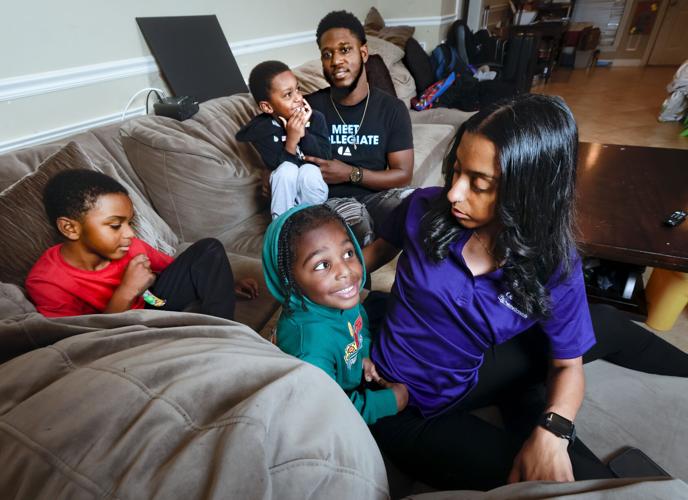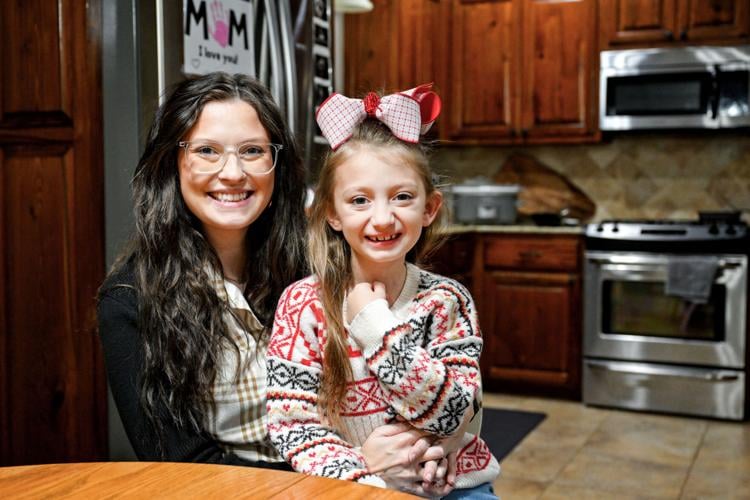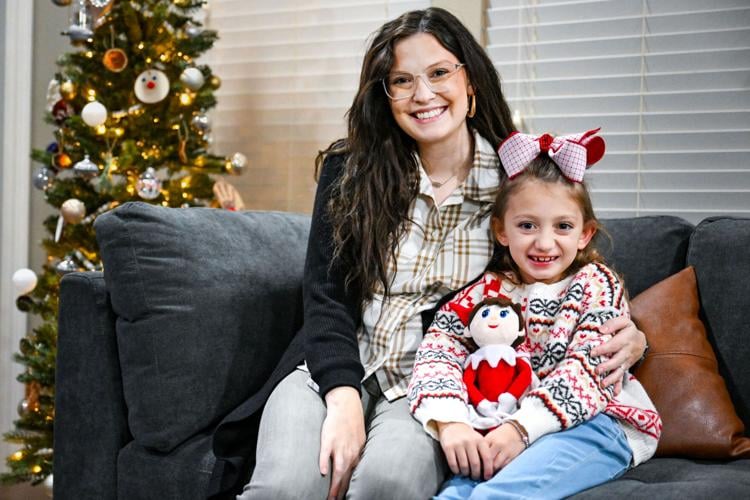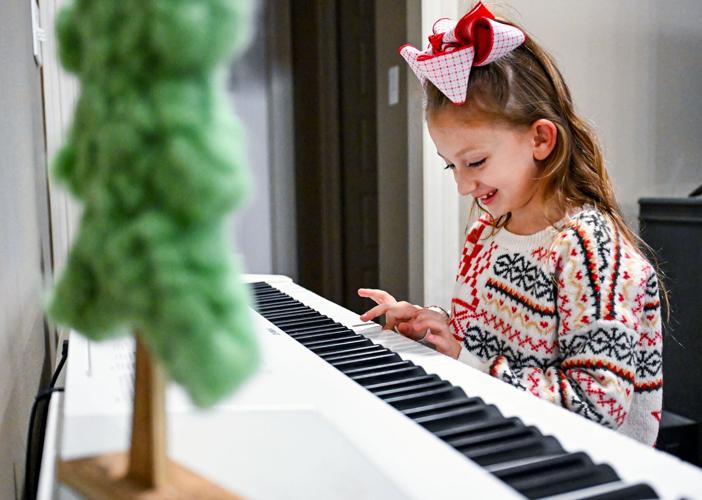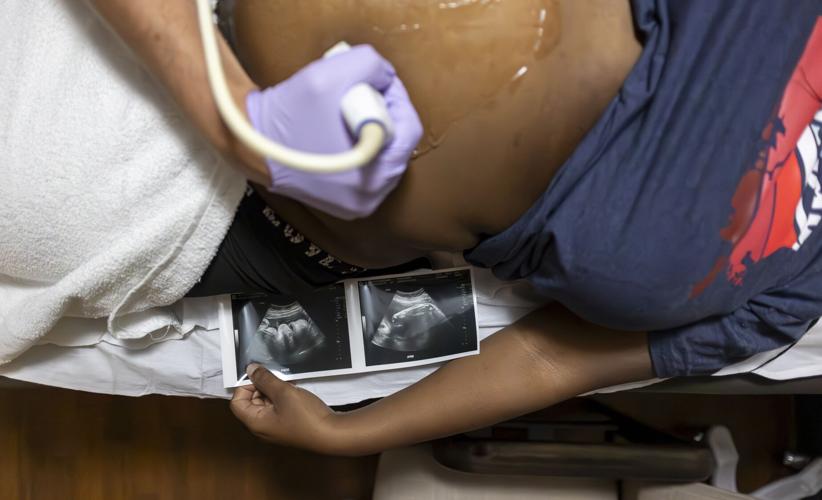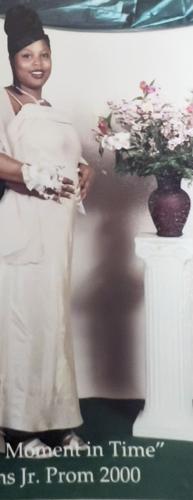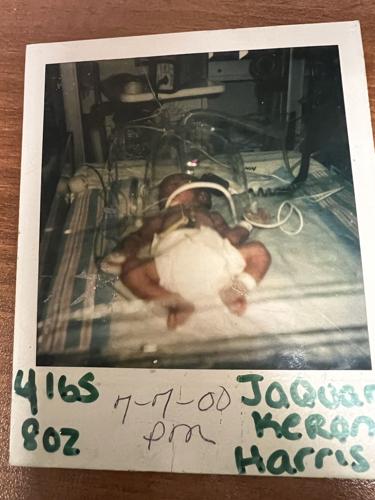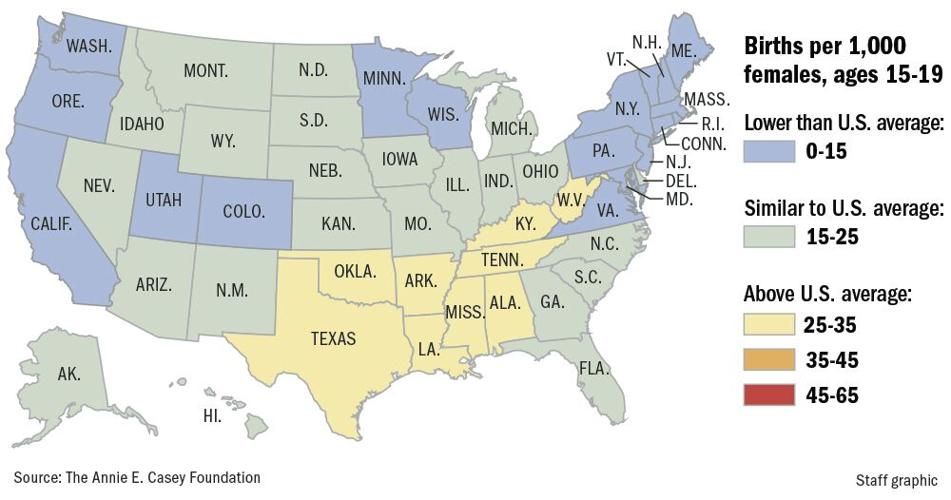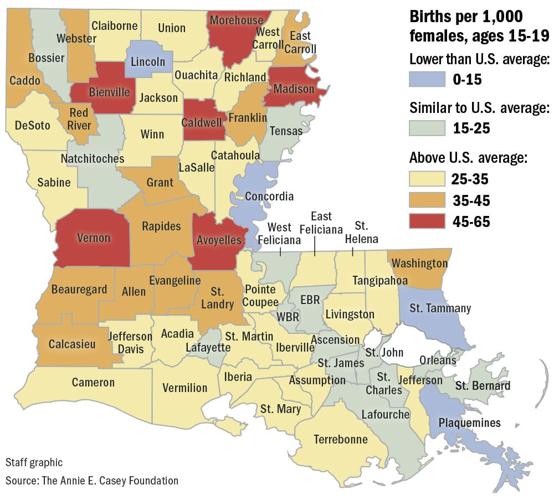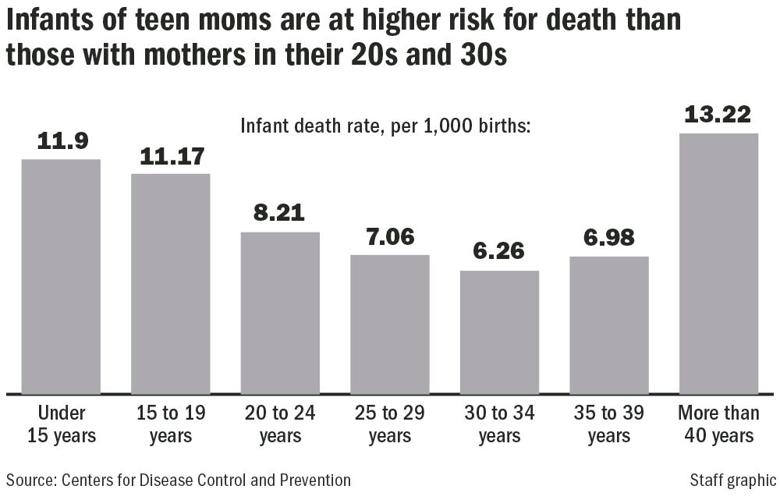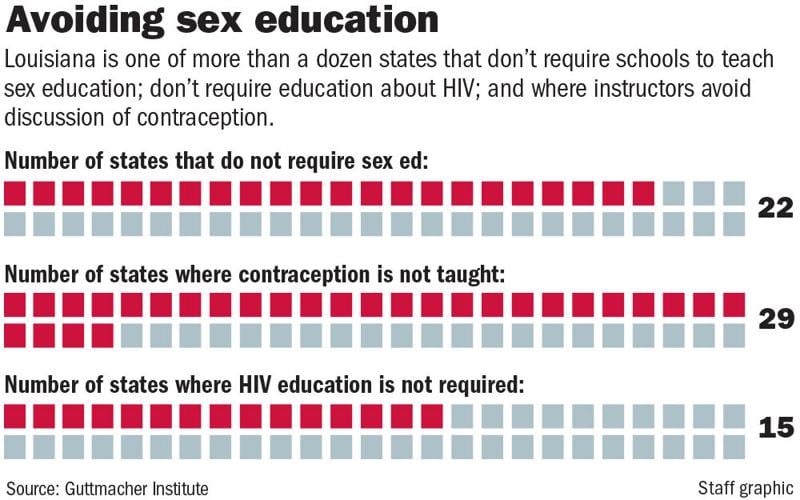Louisiana has one of the nation’s highest rates of teen pregnancy, with teen birthrates nearly double the national average. Those rates affect the state’s infant mortality crisis as well: State data shows that babies born to teenagers are much more likely to die during their first year of life than those with mothers in their 20s and 30s.
The Times-Picayune | The Advocate invited readers to share their stories of being teen moms in Louisiana and heard from nearly 60 women. While none described their journeys as easy, most said they were grateful for how their lives turned out. But they said teen moms need more education and support.

More teen pregnancies, more infant deaths: Louisiana teenagers are more likely to give birth than those in most other states, while schools aren’t required to teach sex ed.
Here are a few of their stories:
Grace McKendall-Thompson, 26, pregnant at 17
McKendall-Thompson was running to the bathroom to throw up in between classes her senior year of high school.
She had planned to leave New Orleans for college and was hoping none of her classmates would find out she was expecting. She found out later, though, that her purple prom dress had set off rumors that she might be pregnant.
She agonized over what to do and considered having an abortion.

Grace McKendall-Thompson and her now-husband Hassan Thompson were expecting a baby their senior year of high school in 2015. McKendall-Thompson is now part of a program for teen parents in New Orleans called Generation Hope.
“In my soul, it didn’t feel right,” she said. “I definitely don’t regret it now. It's been hard being a teen parent, but I feel like I’m a little bit ahead of the curve.”
McKendall-Thompson had her son, Hassan Jr., shortly after she graduated.
She tried to keep up with taking care of him while taking classes at UNO, but it was too much. Her high school sweetheart, Hassan’s father, had a scholarship to attend Grinnell College in Iowa .
They got married and she moved to Iowa with him for three years.
She got an associate degree there and worked several jobs, trading shifts with her husband so one of them could watch their son while the other was working or in school. She had a second son, Hosea, in Iowa.

Once her husband graduated, they moved back to New Orleans in 2019.
McKendall-Thompson had a third son, Huey, and became part of a new program in New Orleans called Generation Hope that helps teen parents.
She’s gotten free counseling, tuition support, activities for her kids and mentorship through their program. McKendall-Thompson said she was especially grateful to be paired with a mentor who also has an autistic child. Two of her three boys have been diagnosed with autism.
“I wish Generation Hope would have come to New Orleans before,” she said. “If they had a program like that when I was in high school, everything would have been different.”
She’s working on her bachelor’s degree remotely through Southern New Hampshire University. She also self-published a book called “The ABC’s of Autism.”
She encourages other teen moms to believe in themselves and credits prayer with helping her through.
“I definitely believe in God,” she said. “He makes the way.”
Ashton Galbo, 25, pregnant at 17
Galbo was 17 when she took a pregnancy test at Southeastern Louisiana University’s student clinic.

Ashton Galbo poses with her seven-year-old daughter, Harper-Layne, in their home on Thursday, November 30, 2023.
She hadn’t anticipated getting pregnant so young and never learned what kind of resources were available to her. She also had severe nausea, called hyperemesis gravidarum, and needed to be hospitalized several times. She carried around a portable IV pump.
“I eventually broke down,” she said. “I tried to hide it from my mom as long as I could but I was like, ‘I need help.”
She scheduled a meeting with an adoption counselor, but changed her mind. Her family pledged to help her raise her baby.
She had Harper-Layne, in 2016. Galbo loved her instantly, but she struggled with postpartum depression.
She eventually got an associate degree from Baton Rouge Community College and a full-time job at the East Baton Rouge Clerk of Court’s Office. She also self-published a book about her family’s struggles with addiction.

Harper-Layne, 7, plays piano in her home on Thursday, November 30, 2023.
Now married and expecting her second baby, she said having a supportive partner has made all the difference.
“Let’s make contraception and sex ed more accessible to everyone,” Galbo said. “Girls need to be supported, they need to be told there’s help out there and not being made to feel ashamed or embarrassed or alone. Knowledge is power: knowing what your options are, knowing your body, where you can go for help, it will make all the difference in the world.”
Toni Williams, 48, pregnant at 13, 14 and 19
Williams credits her grandmother for not giving up on her when she became pregnant at 13.
She was in sixth grade in Jena and knew little about sex, other than that her boyfriend was pressuring her for it. Despite her young age, Williams gave birth to a healthy baby girl, Jalisha, in 1989 and her grandmother taught her it wouldn't define her life.
“I was still a baby myself — with a baby,” Williams said.

An expectant mother holds onto an ultrasound photo of her baby while lying on a table at St. Francis Medical Center.
She almost immediately got pregnant again at 14, which filled her with so much shame that she didn’t seek prenatal care. That decision nearly cost her life: she started bleeding when she was seven months pregnant and hemorrhaged.
When her premature daughter had to be transferred to New Orleans, Williams did not have transportation to visit her. And when she eventually got the chance to see her in the hospital and understand the medical care the baby needed, she knew she couldn’t provide it. She decided to allow another family to adopt her second baby, and they stayed in touch.
“You don’t know how bad I got looked at when I had those babies back to back,” she said.
Williams had her third baby when she was 19.

More teen pregnancies, more infant deaths: Louisiana teenagers are more likely to give birth than those in most other states, while schools aren’t required to teach sex ed.
Then her life took a turn for the better: she got her GED, went to vo-tech school and social workers encouraged her to become a certified nurse aide. They bought her uniforms, shoes and books. She also met her husband, and had two more children with him.
They had many good years together before he died from COVID in 2020.
“I’ve been a mother my whole life,” she said. “I had a happy life with my husband. I had one that was amazing. I’ve had a really good ending.”
Ke’Shawn Harris, 40, pregnant at 16 and 19
Harris had a series of struggles after she found out she was pregnant at 16 in Westwego.
While her parents were mostly supportive, her first doctor terrified her, telling her she should have both a hysterectomy and an abortion because she had ovarian cysts. A second physician assured her that she could have her baby, but that she’d need surgery to remove the cysts first.

Ke'Shawn Harris was 16 when she got pregnant in Westwego. She had preeclampsia and had to be induced six weeks early.
But after surgery, she developed severe preeclampsia. Physicians induced her two months early because the only cure is giving birth.
“I was terrified,” she said. “I hadn’t even unpacked everything from my baby shower. I wasn’t prepared mentally, physically, emotionally.”
Her son, Ja’Quan, was born in 2000 during Harris’ summer break. He needed a week and a half in neonatal intensive care. He had seizures early on, but eventually grew out of them.
Harris was one point short of passing the LEAP test. She decided years later to try again after having a second baby at 19 and working minimum wage jobs. She passed and got her high school diploma seven years after her original graduation date.
She then got associate’s and bachelor’s degrees in criminal justice, had two more children and got married. Ja’Quan is now 23 and coaches football in California.

Ja'Quan Harris was born six weeks early in 2000 after his mom, Ke'Shawn, had to be induced because of preeclampsia. Ke'Shawn Harris was 16 when she got pregnant with him.
She also spent time in therapy and counseling, unpacking how being molested as a child changed the course of her life. She works with a nonprofit that supports former inmates.
“I want to be that person for other people that I needed,” she said. “Some teen moms are more than just statistics, some really beat the odds even when they are lined up against them.”
Jenise Matthews, 38, pregnant and 16 and 18
Matthews was making A’s in high school and hoping to go to college when she got pregnant at 16 in New Orleans.

Her mom and her boyfriend’s mom suggested she have an abortion, and she didn’t see many other options. She had an abortion toward the end of her junior year of high school.
In retrospect, her feelings about it are complicated. She said it was painful and traumatic, causing her to bleed for two months afterward. Doctors told her she probably would not be able to have children in the future, though it turned out they were wrong.
It wasn’t a process she would recommend. But she also said she was grateful that she wasn’t trying to raise a baby at 16.

Jenise Matthews had her son, Dorian, when she was 18. They had to evacuate from New Orleans for Hurricane Katrina when he was 8 months old. When people in Texas found out she had little to take care of her baby, they stepped up to help her.
“Sometimes I think, where would I be if I had that extra child?” she said. “But I’m thankful now that I’m older.”
She got pregnant again when she was 18 and had a son, Dorian. When he was just 8 months old, Hurricane Katrina hit. Her family evacuated the morning before the storm, and she brought a few diapers, one bottle and half a can of formula.
She wasn’t sure how she was going to take care of her baby once it became clear that it would be a while before they could go back to New Orleans. She credits the kindness of strangers in Texas who helped her.
“When they found out I had a little baby with nothing, they had so much stuff for me,” she said, recalling donations of diapers, clothes and food. “I went from nothing to everything.”
They eventually returned to New Orleans and lived in a FEMA trailer while they rebuilt her mom’s house.
Four years later, she had a daughter when she was 23. She’s proud of both of them.
“I took it one day at a time,” she said.

